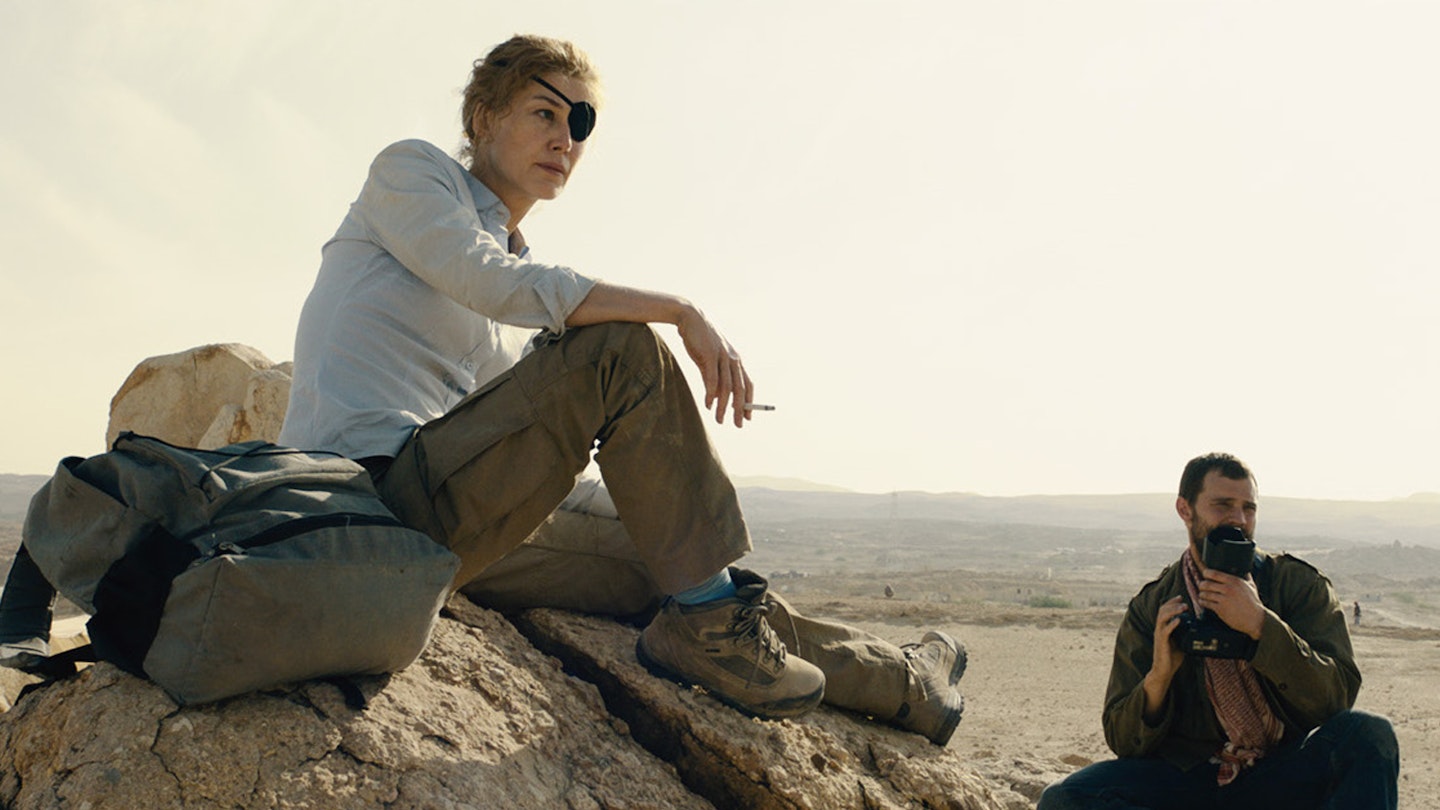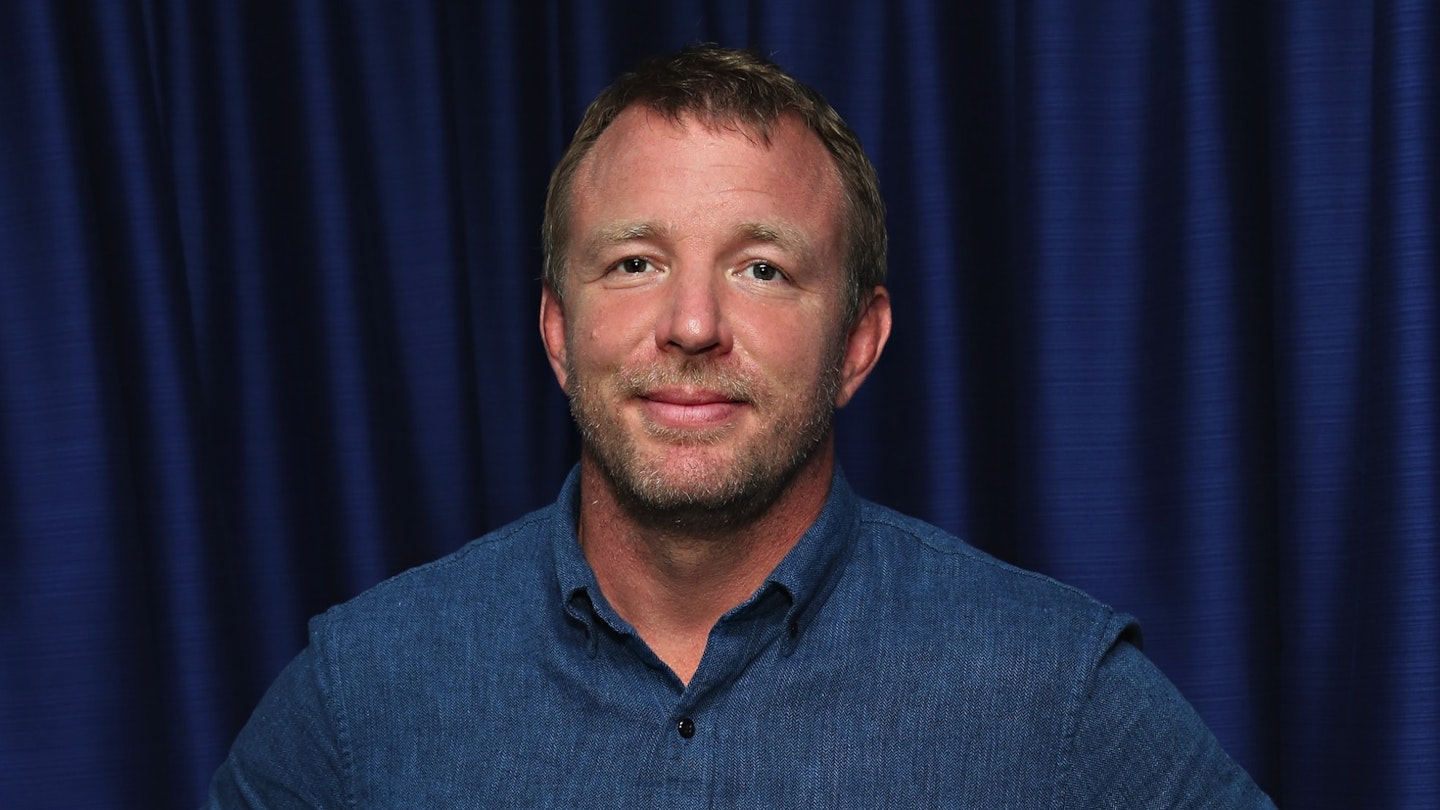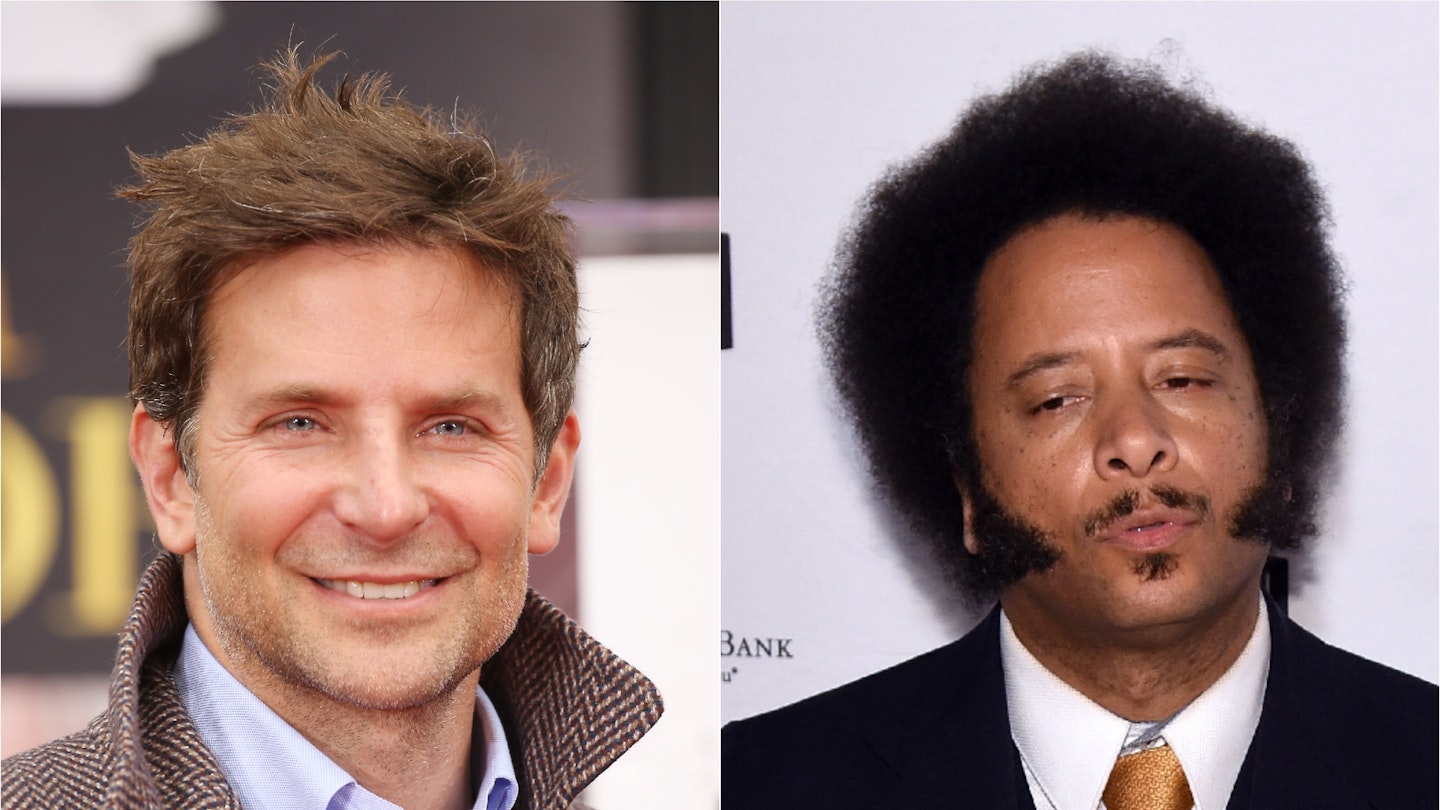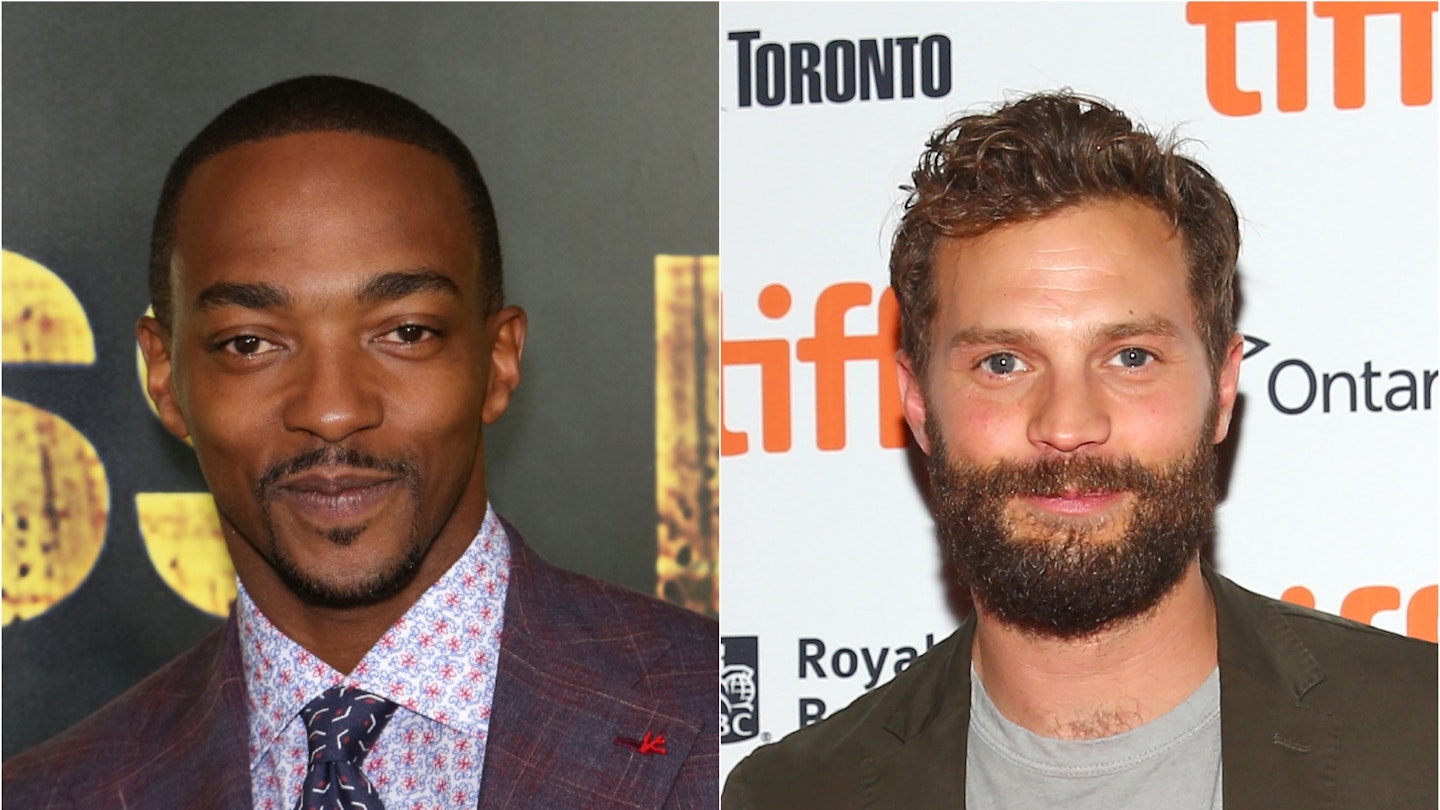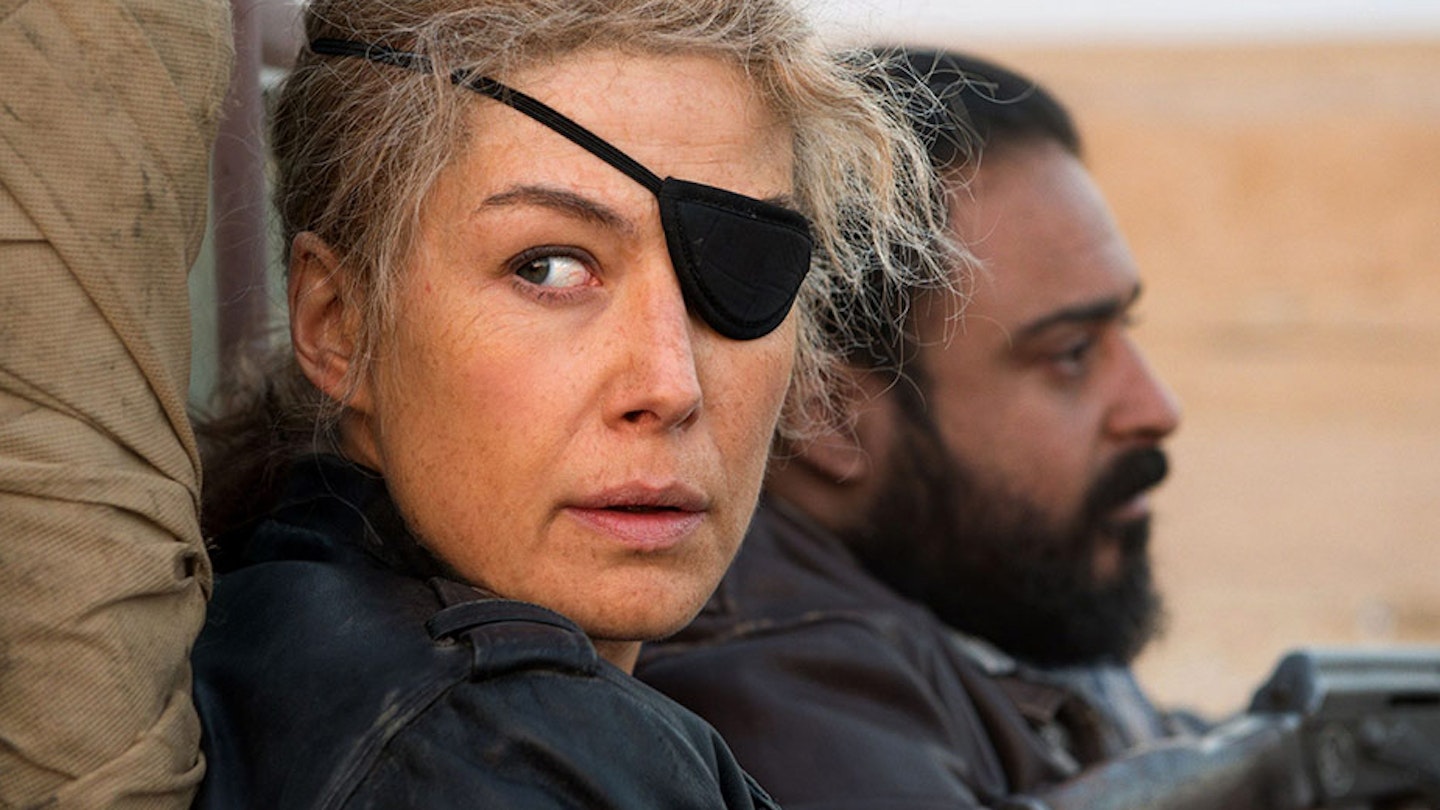The transition from cinematic documentarian to narrative feature-maker is not always the easiest — just ask Joe Berlinger, praised for Paradise Lost: The Child Murders At Robin Hood Hills then ridiculed for Book Of Shadows: Blair Witch 2. So with his debut narrative movie A Private War, director Matthew Heineman (who was Oscar-nominated for 2015’s superb Mexican drug war-investigating Cartel Land) wisely keeps the subject and style close to his non-fiction roots. Focusing on the final decade-or-so of celebrated war journalist Marie Colvin’s life, his film forebodingly counts down to the event in Syria that would finally silence her fierce and resonant voice. All the way, he sticks uncomfortably close to reality, even weaving in audio of Colvin herself as voiceover.
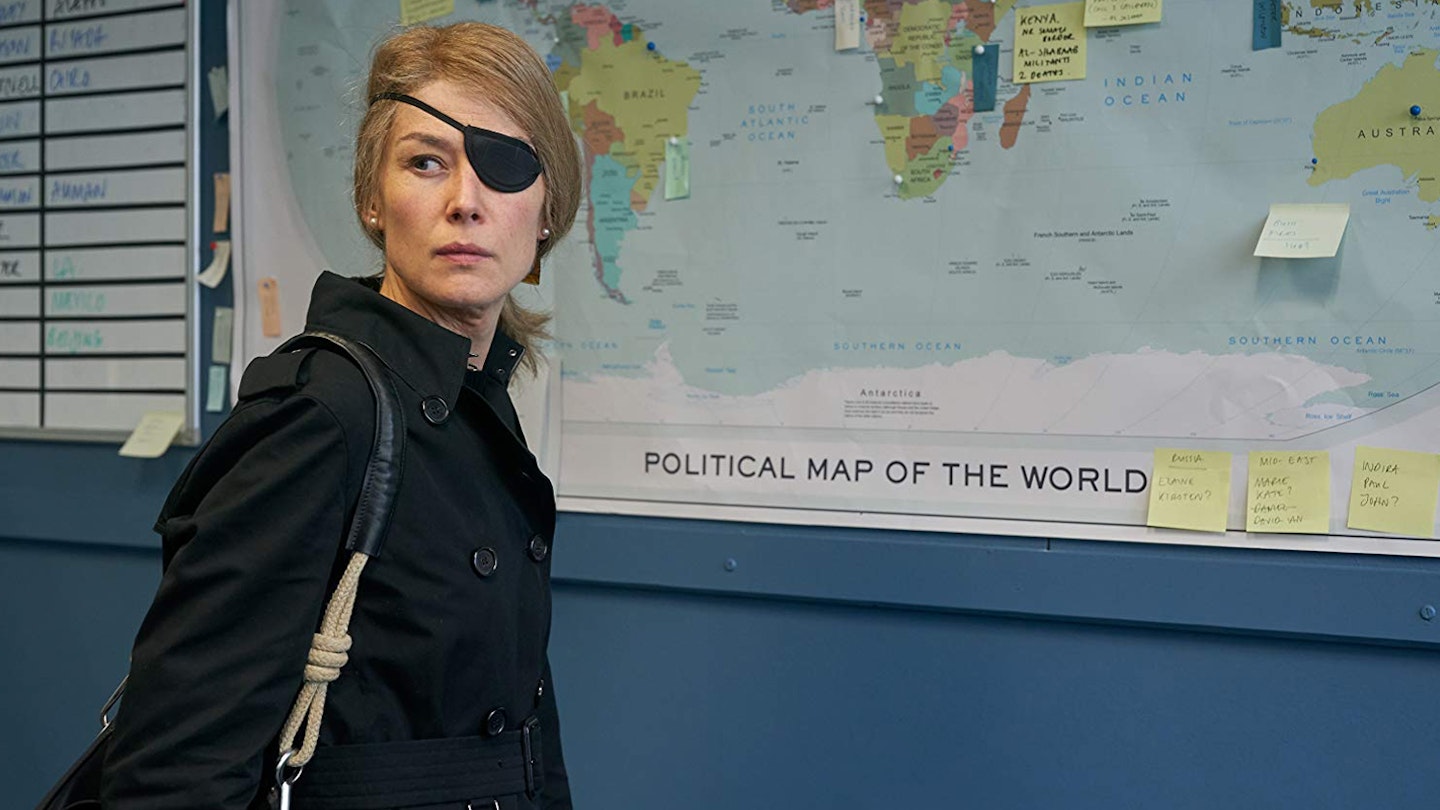
Yet there is a sense that, with a true-life story this strong, why not just make it as a documentary? At times you wish you were hearing more from the real Colvin, or the reflections of her contemporaries and surviving colleagues, rather than absorbing the heavy-handed swings of Grace Of Monaco writer Arash Amel’s script (adapted from Marie Brenner’s 2012 Vanity Fair article on Colvin). It’s a disappointingly tell-rather-than-show affair, where dialogue scenes clunk and creak as Colvin’s passion and arguably self-destructive drive are repeatedly spelled out for us: “You’ve seen more war than most soldiers,” her photographer Paul Conroy (Jamie Dornan) says unnecessarily; “You have a God-given talent to make people stop and care,” her editor Sean Ryan (Tom Hollander) pointlessly points out.
Despite the warzone-to-warzone countdown structure, it is also a film that frustratingly lacks momentum, tugging us back and forth between the screaming gunfire of Colvin’s frontline assignments and her listless, trauma-punctured interludes back in London.
It becomes repetitive rather than revelatory, only really hitting its stride when we eventually arrive at the horrors of Homs, in Syria.
Fortunately, Heineman does play a pair of aces. One is cinematographer Robert Richardson, who also shoots for Oliver Stone and Quentin Tarantino, and here captures Colvin’s experiences with a queasy, handheld immediacy. The other is Rosamund Pike as Colvin, who delivers what feels less like a performance than an act of possession. After Gone Girl and last year’s ultra-harsh Western Hostiles, Pike once again throws herself into territory you imagine few other actors would dare to tread, tearing away at Colvin’s layers and baring her soul in a way that no documentary could. It is career-peak work, the truthful tour-de-force that Colvin deserves — albeit one which you might wish were better serviced by the script.
